第49章 THE INTERVIEWER ATTACKS THE SPHINX(5)
"Well,I--prepared that article for our columns.You know one does not have to see everything he describes.You found it accurate,Ihope,in its descriptions?""Yes,Murray is generally accurate.Sometimes he makes mistakes,but I can't say how far you have copied them.You got the Ponte Molle--the old Milvian bridge--a good deal too far down the stream,if Iremember.I happened to notice that,but I did not read the article carefully.May I ask whether you propose to do me the honor of reporting this visit and the conversation we have had,for the columns of the newspaper with which you are connected?"The Interviewer thought he saw an opening."If you have no objections,"he said,"I should like very much to ask a few questions."He was recovering his professional audacity.
"You can ask as many questions as you consider proper and discreet,--after you have answered one or two of mine:Who commissioned you to submit me to examination?""The curiosity of the public wishes to be gratified,and I am the humble agent of its investigations.""What has the public to do with my private affairs?""I suppose it is a question of majority and minority.That settles everything in this country.You are a minority of one opposed to a large number of curious people that form a majority against you.
That is the way I've heard the chief put it."Maurice could not help smiling at the quiet assumption of the American citizen.The Interviewer smiled,too,and thought he had his man,sure,at last.Maurice calmly answered,"There is nothing left for minorities,then,but the right of rebellion.I don't care about being made the subject of an article for your paper.I am here for my pleasure,minding my own business,and content with that occupation.I rebel against your system of forced publicity.
Whenever I am ready I shall tell the public all it has any right to know about me.In the mean time I shall request to be spared reading my biography while I am living.I wish you a good-morning."The Interviewer had not taken out his note-book and pencil.In his next communication from Arrowhead Village he contented himself with a brief mention of the distinguished and accomplished gentleman now visiting the place,whose library and cabinet of coins he had had the privilege of examining,and whose courtesy was equalled only by the modesty that shunned the public notoriety which the organs of popular intelligence would otherwise confer upon him.
The Interviewer had attempted the riddle of the Sphinx,and had failed to get the first hint of its solution.
The many tongues of the village and its visitors could not remain idle.The whole subject of antipathies had been talked over,and the various cases recorded had become more or less familiar to the conversational circles which met every evening in the different centres of social life.The prevalent hypothesis for the moment was that Maurice had a congenital aversion to some color,the effects of which upon him were so painful or disagreeable that he habitually avoided exposure to it.It was known,and it has already been mentioned,that such cases were on record.There had been a great deal of discussion,of late,with reference to a fact long known to a few individuals,but only recently made a matter of careful scientific observation and brought to the notice of the public.This was the now well-known phenomenon of color-blindness.It did not seem very strange that if one person in every score or two could not tell red from green there might be other curious individual peculiarities relating to color.A case has already been referred to where the subject of observation fainted at the sight of any red object.What if this were the trouble with Maurice Kirkwood?It will be seen at once how such a congenital antipathy would tend to isolate the person who was its unfortunate victim.It was an hypothesis not difficult to test,but it was a rather delicate business to be experimenting on an inoffensive stranger.Miss Vincent was thinking it over,but said nothing,even to Euthymia,of any projects she might entertain.